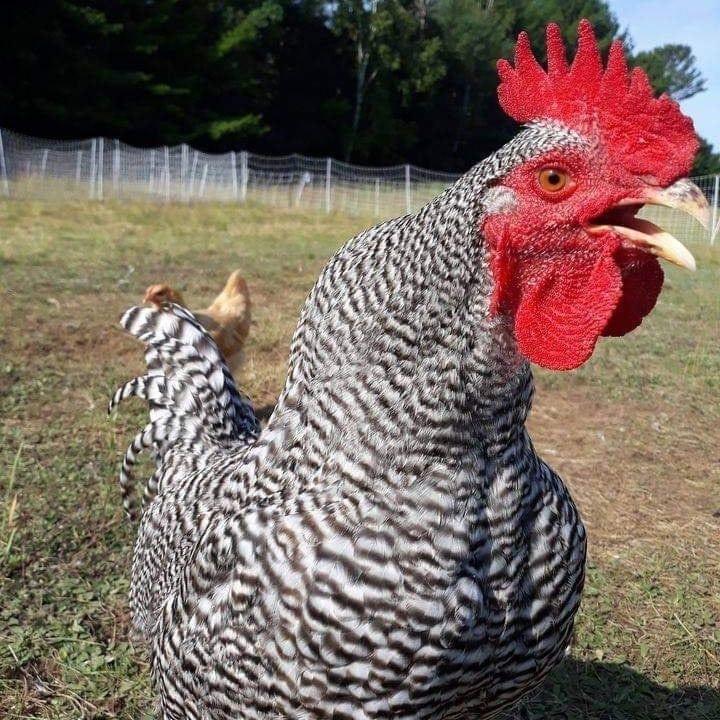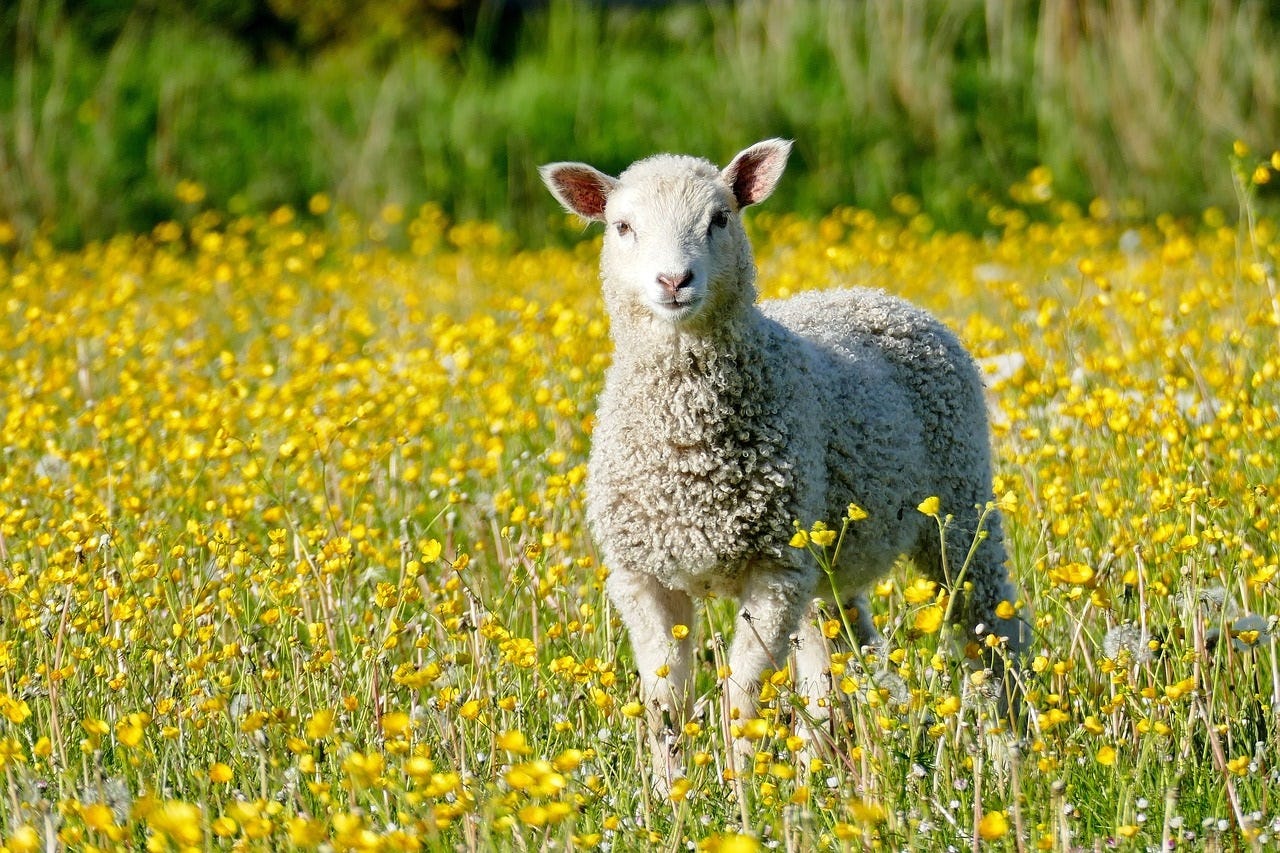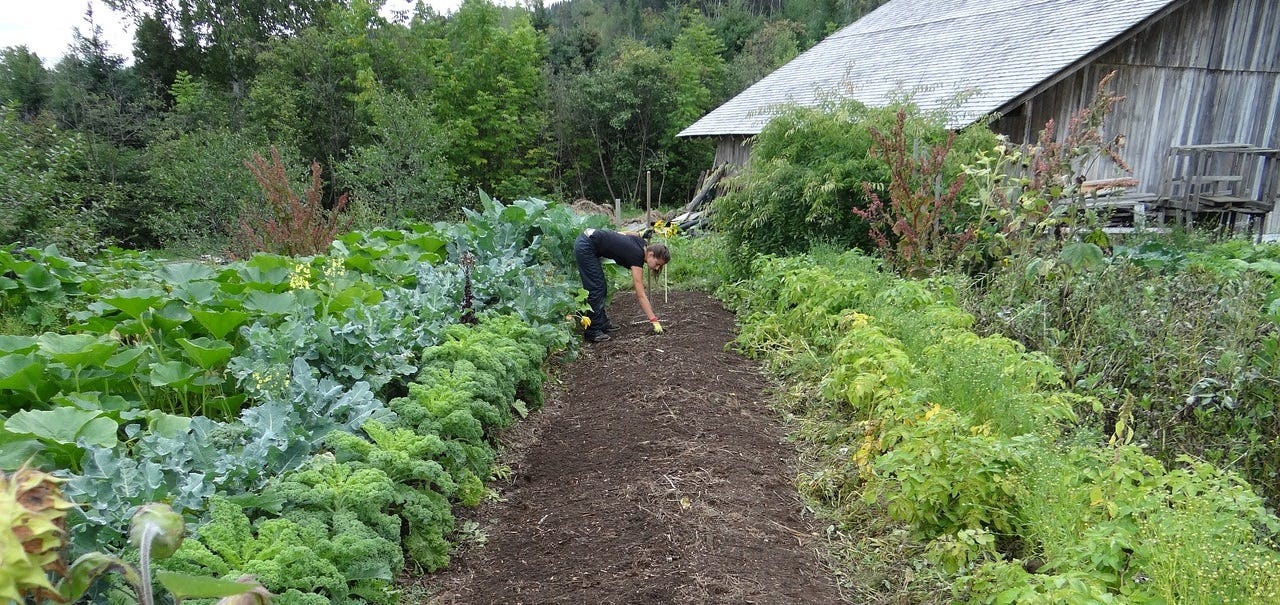The day I bought my farm will live forever as one of the greatest days of my life. An agonizingly long and tumultuous journey, culminating in the purchase of the 53-acre property where the Runamuk Acres Conservation Farm now resides.
A miracle happened that day. My miracle.
Welcome to the latest edition of Sparkling Audacity. If you are new here, read my About page to find out what this newsletter is, who I am and why I am doing this. Or just dive in! At “Sparkling Audacity” you’ll find the recantings of one lady-farmer and tree-hugging activist from the Runamuk Acres Conservation Farm in Maine.
I Bought a Farm!
On June 27th, 2018, I came out of the Somerset County USDA building in Skowhegan, Maine, with a Deed and a set of keys. During the 30 minute drive to from the office to my new farm, I proceeded to vacillate between bouts of uncontrollable laughter, wild shrieking, and floods of tears. Tears of indescribable joy, followed by tears of immense relief. I was so high, I was literally on Cloud 9. I probably shouldn’t have been driving.
Somehow I had managed to work my way into farm-ownership. Me. A girl from an extremely dysfunctional, low-income, non-farming family─with no means and no education to speak of.
I bought a farm!
How I Bought A Farm With No Money
Utilizing funds earmarked for disadvantaged female farmers, I bought my farm as a beginning farmer through the USDA’s Farm Service Agency. There was no down-payment, and I received a low 3.5% interest rate on this federal loan. The only funds I had to come up with were that of the Earnest Offer, which I was able to crowd-fund from my local community.
On paper (as in, when I started filing a Schedule F with my taxes) it took nearly 10 years to attain that victory. When in reality, I think my entire life was leading me to that moment─so that I could do the work I am doing today. So, if you’re here because you’re looking for a quick and easy way to farm-ownership, you’re in the wrong place, my friend.
However, if you’re here because you’re serious about growing food and feeding community regardless of how long it takes to achieve farm-ownership, then I suggest you check out the Runamuk Blog. I’ve written countless posts sharing my farm-journey, as well as numerous how-to articles designed to help aspiring homesteaders and farmers start their own.
What is the Runamuk Acres Conservation Farm?
Runamuk Acres is a small family-farm owned and operated by me, Samantha Burns, with help from my 17yo son, BraeTek. The farm currently produces mixed vegetables, fresh eggs and pastured lamb, as well as whatever else I make, bake, or craft together. All of that is sold directly from our on-site farmstand.
With a farmstayB&B renown for it’s farm-to-table breakfasts, as well as a remote campsite in the back-40, I’m growing this 53-acre farm as an ecological reserve.
In 2020, conservation lands at Runamuk Acres were contracted to the USDA/NRCS for a 50-year commitment to wildlife preservation. With miles of trails running through the these protected habitats, Runamuk is open to the public for hiking, snowshoeing, cross-country skiing, or biking, offering visitors a chance to connect with nature one-on-one.
The farm’s mission is:
“to protect wildlife through the conservation of beneficial insects and soil microbial life, providing an ecological and financial benefit to the entire community, and the community includes the soil, water, fauna and flora, as well as the people.”
To do this, we’re employing methods of regenerative agriculture to build soil. Our sheep aren’t just cute and friendly tourist attractions, though guests do love them. These sheep are organic lawnmowers performing work crucial to this farm’s objective, which is to create a healthier habitat─both above and below ground─for local wildlife.
For more about the farm, I invite you to click over to Runamuk’s website.
This is my Why, for being here at Substack and for turning on paid subscriptions. But then, this is the reason for everything I do, lol. It’s my purpose.
Writing to the Front
Even as I’ve put the farm first all these years, writing has always been a part of my life. To this day, I have bins of composition journals filled with stories, notes, research and diaries. To this day, I still scribble in composition journals.
Some twenty years ago, before I had children, I spent some time working for the local newspaper. I had some cockamamie aspiration of becoming a photo-journalist for National Geographic. That career never lined up for me, though I’ve written plenty that’s been published both online and in print.
For a while, I was even the editor of “The Bee-Line”─a bi-monthly publication from the Maine State Beekeepers’ Association. I was responsible for writing and recruiting writing, formatting and sending the newsletter to the printer’s. That gig actually paid something like $250 a quarter.
It’s the farm-blog, though, that has become the centerpiece of my creative life. The side-gig to my side-gig, I’ve documented my journey as a female-farmer for years. I’ve shared my struggles and my victories─all in the name of the farm. I’ve written thought-provoking pieces about local food and agriculture, and shared them for free. Members to the farm’s CSA program received beautifully crafted weekly updates─one of the perks of membership which I threw in for free. Always working for free, taking heart in the fact that my work inspired and educated readers.
In the wake of my 2023 fall-out, however, writing has been pulled off the back-burner and very deliberately moved to the front. And on the big burner too─none of this little-burner bullsh*t.
I’ve restructured my life to prioritize creativity, and I am writing with wild abandon. Rising at 3am every day to steal a few precious hours in the office before the farm calls me away. It’s demanding yes, torn between two great loves─each wanting my attention. Yet, both are driven by the same burning purpose: wildlife conservation.
Big Magic
Part of my life’s restructuring involves actively cultivating creativity. Naturally, that means I’ve been listening to
’s book: “Big Magic”, while doing farm-chores.I love the way Liz talks about inspiration as a living entity. It makes perfect sense now that she’s spelled it out for me. Of course inspiration is a force of enchantment! Of course creativity is big magic! Why didn’t I see that before!?
At one point in the book, Liz says:
“…the Greeks and the Romans both believed in the idea of an external daemon of creativity—a sort of house elf, if you will, who lived within the walls of your home and who sometimes aided you in your labors. The Romans had a specific term for that helpful house elf. They called it your genius—your guardian deity, the conduit of your inspiration. Which is to say, the Romans didn’t believe that an exceptionally gifted person was a genius; they believed that an exceptionally gifted person had a genius. It’s a subtle but important distinction (being vs. having) and, I think, it’s a wise psychological construct. The idea of an external genius helps to keep the artist’s ego in check, distancing him somewhat from the burden of taking either full credit or full blame for the outcome of his work. If your work is successful, in other words, you are obliged to thank your external genius for the help, thus holding you back from total narcissism. And if your work fails, it’s not entirely your fault. You can say, “Hey, don’t look at me—my genius didn’t show up today!” Either way, the vulnerable human ego is protected. Protected from the corrupting influence of praise. Protected from the corrosive effects of shame.”
I love, love, love the idea of personifying the creative genius! As a farmer, however, I did a double-take when Liz advocates against demanding an income from your genius:
“But to yell at your creativity, saying, “You must earn money for me!” is sort of like yelling at a cat; it has no idea what you’re talking about, and all you’re doing is scaring it away, because you’re making really loud noises and your face looks weird when you do that.”
This stuck with me, eating at me as I geared up to accept paid membership to both the farm-blog and Sparkling Audacity. Everyone has a job to do on the farm─some contribution made for the collective good of the whole. When I heard Liz warning against using your genius to make money, fear and insecurity reared it’s ugly head. Was it wrong for me to ask my genius to pull his weight? Is my writing really good enough to warrant payment?
I decided the answer was no. And yes. Respectively.
I know my work is good, because I’ve spent years honing my craft. I’m confident in my abilities. And it’s absolutely time to make my own big magic.
Working Together
If we’re personifying our creative genius (and yes, I am totally running with that, thank you, Liz!), then I have to wonder at this daemon who’s chosen to align himself with me of all people.
At first, I felt sorry for it, for I am so intensely driven by this single-minded sense of purpose that he must have surely felt neglected at times. Everything I do─or, very nearly everything─is with the intention of furthering this ecological reserve. Anyone who gets close to me has to be able to accept that they’re sometimes going to take a back-seat to the farm. Even creative daemons.
Yet, if these “disembodied energetic lifeforms”─as Liz puts it─possess consciousness and free will of their own, then this entity chose me. It chose to be here with me. Which means it agrees with me. Which must mean that my purpose is his purpose. And now that I am thinking about it, what a great team we can be─if we work together?!
I get what Liz is saying, but don’t think it’s reprehensible to ask to be paid for good writing at this point in my career. I’ve carried my genius for years, carefully nurturing it until it became strong enough to take the next step.
Together, my genius and I are funding a grassroots conservation movement. As you might imagine, that takes some financing─a little grease for the wheels─if you know what I mean…
A Literary CSA
What I’m proposing at Sparkling Audacity is a sort of “literary CSA”. Where members subscribe to support efforts at the Runamuk Acres Conservation Farm. In exchange those members receive a share of the “harvest” in the form of intriguing online content and in the community we will grow together.
The CSA model has gained in popularity over the last 10-20 years, but if you’re not a frequenter of your local farmers’ market, you might not be familiar with the term.
“Community Supported Agriculture, or CSA, is a relationship between community members and the farm. Members commit to a whole season, allowing the farmer to offset early season costs such as seeds, amendments, etc. In exchange members receive an abundance and variety of nutritious vegetables over the course of the growing season, along with certain member-perks.”
Runamuk maintained a 40-household CSA for years, ensuring we always had a core group of dedicated customers and a guaranteed outlet for the farm’s products. It wasn’t until this past season with it’s incessant rains that devastated crops, that I decided to end the CSA. Members might know the risks when they sign up, but that doesn’t make me feel any better when I can’t deliver. It was time to let go of the CSA in favor of something else.
What to Expect
Substack is still very new to me, so I expect this to evolve and grow in ways that I cannot yet know. I will definitely be working on the following, while leaving the door open to other ideas and opportunities that may present themselves…
Updates from the Farm: A weekly debriefing on some of the highlights of the past week at the Runamuk Acres Conservation Farm. These pieces are cross-posted to both Sparkling Audacity and the Runamuk blog. These will forever remain free to the public as part of my commitment to the local community this farm serves.
Daily Farm-Note: At the end of each day I’ll share a Note to Substack for readers. This might be 1 or 2 big wins from the day, a photo or thought I want to share. Also found at Instagram. Free to all.
The Stack: I’m not sure yet what to call this and it might get broken up into different sections. Frequency will depend upon what’s going on at the farm, but it is my intention to publish an article or essay at least every 2 weeks, rotating the following topics.
Agriculture: Drawing on first-hand experience in the field, I write about agriculture and the local food movement. You might get gardening tips, anecdotes on animal husbandry, recipes for seasonal eating, and more.
Nature: Passionate about wildlife conservation and nature-connectedness, I write about everything from environmental stewardship to pollinator-friendly garden strategies.
Western Maine: Serving as ambassador to the region, I’ll be writing a series of essays about western Maine as a tourist destination. Using first-hand knowledge as a life-long resident, I’ll share recommendations for local eats, festivals, historical treasures, which hiking trails have the best views, and other hidden gems off-the-beaten path.
Authenticity: Sharing my personal journey into a life of authenticity, with strategies for cultivating your own.
Community: It is my intention to cultivate a community of like-minded members: farmers, gardeners, homesteaders, fellow-environmentalists, and those who want to be any of those things. All actively engaged in growing and learning from each other.
Sincere Love & Gratitude: With every payment or donation, you will have my sincerest love and gratitude for helping me achieve my goals in conservation. You will forever be tied to my farm-journey and to the Runamuk Acres Conservation Farm. That’s a special bond.
Proceeds generated at Sparkling Audacity go directly to the care and cultivation of the Runamuk Acres Conservation Farm. When you support my writing, you’re supporting local food access and wildlife conservation simultaneously.
Join Me on This Brave New Journey!
It’s all well and good to resolve to be paid for my writing, but because a large part of my advocacy has always been an act of community service, I find it difficult to really exclude readers from my material. I suppose, ideally, folks would subscribe to help keep access open to spread these messages to a larger audience─like public broadcasting. They would subscribe for the satisfaction and pride of knowing that they contributed to something really profound and special. And because that makes them a part of the journey, too, in some small way.
I’m sure that exemplifies my altruistic nature, but alas, no one gets into farming to get rich. It’s all a labor of love.
For now, I am going to leave access to all my work open to the general public. I have a lot of work to do at Substack, I know, to prove myself. But hard work is my bread and butter as a farmer, so you can bet I’m going to roll up my sleeves and dig in here. I’m going to cultivate something fantastical with Sparkling Audacity. Just you watch and see.
OR….
Subscribe NOW and join me on this brave new journey!







I just read this. Freaking fabulous. I hope this year has been better for you and as we approach the end of this wishing you the best for next. I am still working on obtaining my homestead many years after my divorce and lost relationships, my 9-5 still runs my life, much to my dismay.
https://runamukacres.com/embers/
Samantha! How delightful! First, you write well! Second, it doesn't seem to hurt musicians and artists to be fairly compensated for tgeir work. Why not us?
And finally, nothing but admiration and respect from me. I spent 10 years with our state Soil and Water Conservation Commission and now almost 2.5 years with a statewide Coalition of Land Trusts. I'm the daughter of sheep ranchers out West. My husband, the Professor, and I have been members of a CSA. I love the idea of a literary CSA!